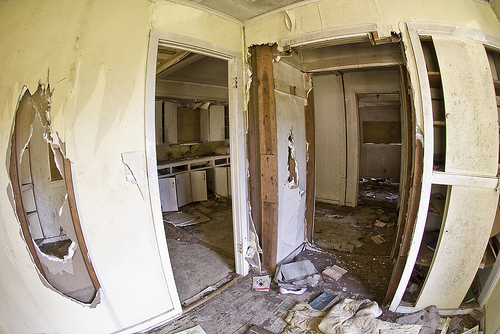Spotting the Rotten Apples: A Landlord’s Guide to Avoiding Terrible Tenants

When screening tenants, most landlords only consider the first of these ways a tenant can cost them, and particularly prudent landlords verify their income (to see whether they CAN pay the lease agreement) and their credit history (to see if they WILL pay the lease agreement). Choosing a tenant with a stable job history, sufficient income, and strong credit history goes a long way in weeding out the tenants who are likeliest to default on the lease agreement, but doesn’t even consider the other two potential problems.
When interviewing the rental applicant for the first time, ask indirect questions; most potentially bad tenants are smart enough to lie and give the landlord the “right” answer, but as a landlord you can arrive at the information you need indirectly. First, after asking what the tenant does for a living, ask them “how they got into that,” instead of asking how long they’ve been doing their currently line of work. A tenant who apprenticed with his uncle to become a master carpenter will tell the story about how his uncle was a wizard with anything made of wood, and how they always wanted to learn how to do the same, so they apprenticed with him ten years ago and learned the trade. A tenant who fell into being a handyman to pay the bills will say something about just falling into it “a few years back to make ends meet,” and will be a far less reliable tenant.

Also ask rental applicants about their current residence. How long have they lived there? How’s the house? What made you decide to move? If they complain a lot, beware. If they mention anything that smacks of a lawsuit, do NOT sign a lease agreement with them. Watch for words like “mold,” “lead paint,” “unsafe” or “unfit,” and anything else that sounds litigious.
Before signing a lease agreement, demand to walk through their current residence. How does it look? How have they kept it? How much “wear and tear” have they caused? Does it look like they take pride in it? Would you want your property to look like this one, a few months after signing a lease agreement with the tenant?
Finally, run a civil case search on the rental applicant, to check for any civil cases they’ve been involved in (whether as the plaintiff or defendant). As a general rule, avoid signing a lease agreement with any rental applicant who has ever been involved in a lawsuit, unless it’s both unrelated to landlord-tenant issues and doesn’t say anything about their character.
It takes years of hard work to build up a rental property portfolio, and only one bad tenant to ruin all of it with a lawsuit. As a closing anecdote, a recent trend in Baltimore City was for tenants with young children to sign a lease agreement on an older home, and if the landlord failed to give them a copy of the lead paint inspection certificate (an easy mistake to make), they would feed their child a lead paint chip and then run them off to the emergency room, claiming that the child has lead poisoning from the rental property. Landlords lose these cases with no exceptions – literally no exceptions. If a child has lead paint poisoning, and the landlord forgot to give the tenant a lead paint certificate, the landlord will be taken for everything they own. Screen your tenants well, and when you make a mistake (as everyone does, from time to time), your tenants won’t sue you, because you made sure not to sign a lease agreement with sue-happy, opportunistic tenants.




Comments